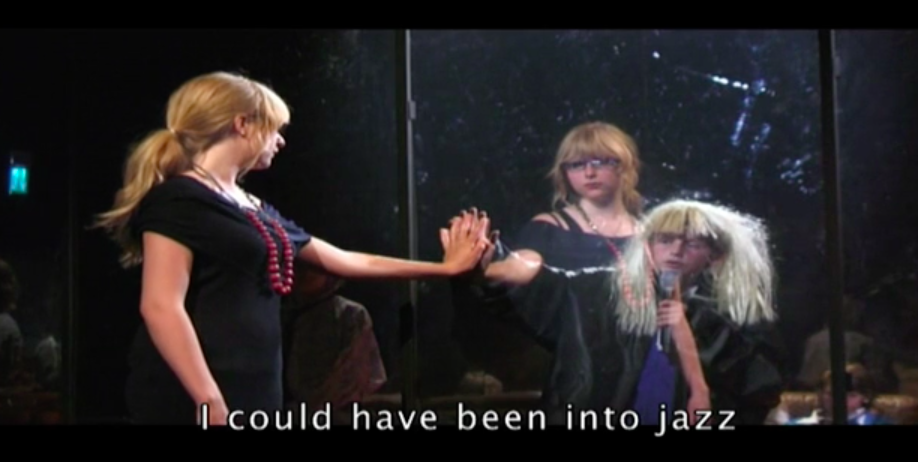Earlier this week the Daily Beast published an article about the contrast in fortunes between the TV and music industries, and how one can learn from the other in five ways. They are:
1. Target adults, not kids.
“HBO realized that the dumbing down of network TV left a large group of consumers under-served, namely sophisticated grown-ups—and these were the same people with the most disposable income to spend on entertainment.”
2. Embrace complexity.
“Complexity appeals to the sophisticated grown-ups mentioned above. But also, more complex content inspires repeated listenings and greater long-term loyalty. The subscription TV networks have figured this out. Meanwhile the music industry is hoping that simple songs … will solve their problems. They won’t.”
3. Improve the technology.
“Television has gone hi-tech with big screens, crystal clear pictures, and concert hall audio. Music is the only branch of the entertainment world to embrace progressively inferior technologies. Movie theaters have upgraded their experience. Video games have achieved unprecedented standards of visual quality, far beyond what the inventors of Pong and Pac-Man ever dreamed of. But music devices sound worse than they did a half-century ago.”
4. Resist tired formulas.
“Every one of the old shows suffered from the same obvious problem: you could predict how the story would end even before it started, so why watch at all? But the beauty of the smart new TV shows is that you still aren’t sure how it ended. Record labels need to emulate the boldness with which the leading pay TV networks have sabotaged genre recipes.”
5. Invest in talent and quality.
“The reality TV model, embraced by broadcast networks, is built on the radical view that you don’t need trained actors or high-priced talent. You can take Snooki off the streets of New Jersey and turn her into a celebrity star. HBO and its peers have adopted the opposite approach. HBO spent $18 million to get Martin Scorsese behind the pilot of Boardwalk Empire. When Netflix decided to back House of Cards, they were willing to pay top dollar for Kevin Spacey—Snooki wasn’t good enough. The music industry is still stuck in the old model. They know that the Snooki path to celebrity is the model to follow, because the public doesn’t really care about musicianship and those tired traditional metrics of talent.”
The article certainly provoked debate in the comments section, although much of it seemed to revolve around whether vinyl sounds better than a digital recording. The other big discussion point was who buys music and how important is complexity in compelling that audience to pay?
The first thing to acknowledge is that people appreciate music and TV shows in different ways. A track might be the pick me up that someone turns to now and again, or something to set the mood while they do something else. And even then, there’s no guarantee that that track will be purchased. It could either be enjoyed on the radio, on YouTube or downloaded illegally. In contrast, a TV series is a major commitment of time, an immersive experience that people like to lose themselves in – with no distractions and few compromises in quality. Put simply, it demands more attention than a song or album.
Everyone has a favourite TV drama. Each is likely to be an international phenomenon. Count them: The Sopranos, 24, Lost, The Wire, Mad Men, Breaking Bad, Game of Thrones, Orange is the New Black and many more. Some, like House of Cards, are guaranteed winners because they are based on our own viewing habits – retailers such as Amazon and Netflix harnessing big data to transform themselves into TV production companies.
No series has raised the bar higher than True Detective in recent years. Obsessing over those first six episodes, pondering them as they took hold of me, demonstrated how far TV drama has come. The scale of ambition. The high concept and depth of emotion. Moments of exhilarating magic like the first appearance of “the monster” Reggie LeDoux or to the one-take shot of Matthew McConaughey’s undercover heist gone wrong. TV hasn’t felt that unsettling and electrifying since Twin Peaks or possibly The X-Files. The formula is easier to spot these days: intricately layered storytelling, deep characterisation, Hollywood-quality direction and production, a sprinkle of A-list talent and a touch of mystery have combined to blur the lines between the box and the cinema. We live in these must-see series on a weekly, sometimes daily basis, freed from the generic and conventional. Open to the elliptical and idiosyncratic. Even the foreign.
Quality at our own convenience is another powerful part of the sales pitch. We need never miss a thing because this is the age of series catch-up and on-demand viewing. Streaming HD-quality video on a giant screen as we put our feet up in the lounge. That’s where we tend to do most of our watching in the UK – 98.5% in fact, according to this Thinkbox survey. Is it any surprise that people are willing to pay for access to a Netflix, Now TV or Lovefilm in addition to their TV licence and/or Sky subscription? In the US, “TV trumps films” on these services, while box office takings are heading south. This serialised entertainment fits into our lives like never before and shrewd investment in talent – from screenwriting to casting – has helped to heighten our appreciation.
So where does this leave the music industry? If executives have learned anything by now, it should be that one size does not fit all. Some people will value unlimited access to a bank of assorted music like Spotify – on any device, anywhere – while others might also appreciate lavishly packaged box sets with liner notes and carefully curated recommendations each month. Across the board, they need to restore respect for the art form and tackle head on this notion of music being a disposable product. The volume of mediocrity and homogenised noise isn't helping the situation.
The way to run a profitable business, one with longevity, is to make something distinct that people want and find very hard to refuse. Using the TV analogy, that could mean raising the quality of releases, both in terms of the music and its reproduction. Neil Young is determined to revolutionise music listening on the go with his Pono Player, although many commentators predict that his efforts will fall on deaf ears. Then there’s the content itself: St Vincent, in a recent interview with The Wire, implied that songwriting could save the industry because it’s an alchemic skill that no auto-tune-like machine can replicate. Not yet anyway. The fact remains: pop music could really do with more craft-oriented stars such as Michael Jackson, Prince, Stevie Wonder, Bruce Springsteen, David Bowie, the Beatles and Led Zeppelin. Whether their absence is down to poor label management or a lack of musicianship and songwriting ability at grassroots level is too contentious a debate to get into here. In short, we need more standard bearers of depth and skill in the limelight.
In terms of a target customer, it’s a mistake to only focus on adults. We all like some form of music: it is still an affirmation of identity to be able to purchase or cue up your own choice, especially if you’re a young kid growing up. The industry needs to stoke the fires of the youth and appeal to their appetite for the new. In time, they may well come to appreciate the value of music making enough to want to pay for it. It’s a hassle to find torrent sites and click through endless windows of ads. Build the right ecosystem – one that’s easy to use, encourages discovery and is stocked with the music that sounds like it’s fresh from the studio – and it will be very hard to say no if the price point is right for both artist and fan. Getting younger generations to invest time and money in an album will be a lot tougher though.
The listening public is often accused of dumbing down, gravitating towards the lowest common denominator or having dwindling attention spans. I have more faith in human endeavour, that need to make something honest and meaningful that speaks to others. Let’s hope that more stars with substance such as Jessie Ware, James Blake, King Krule, FKA Twigs, Frank Ocean, Banks and Sampha – even divisive figures such as Kanye West and Lana del Rey – will emerge to give us all something to hum along to and pick over for more than a minute.




